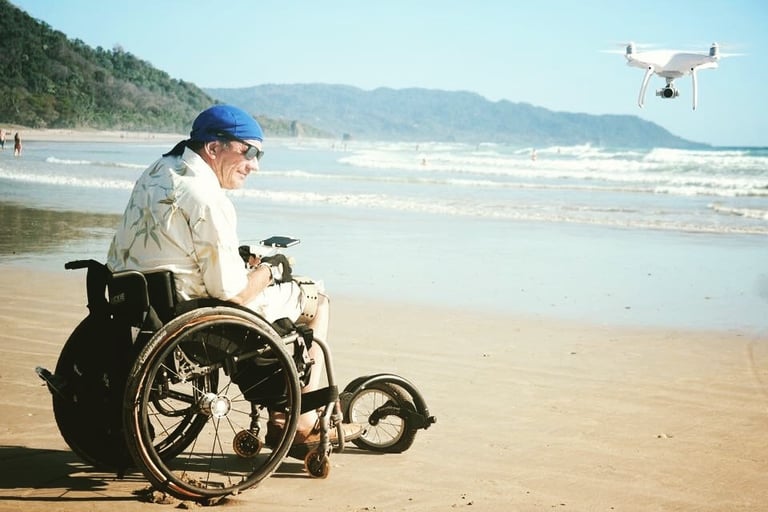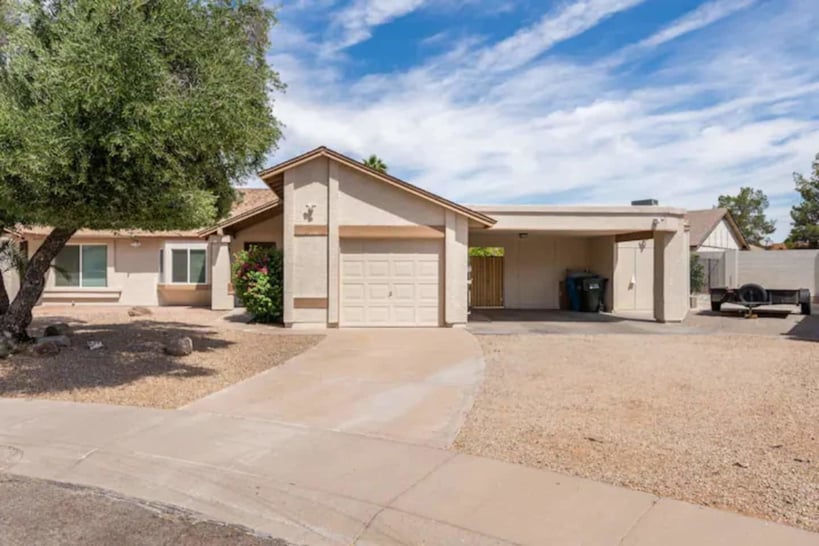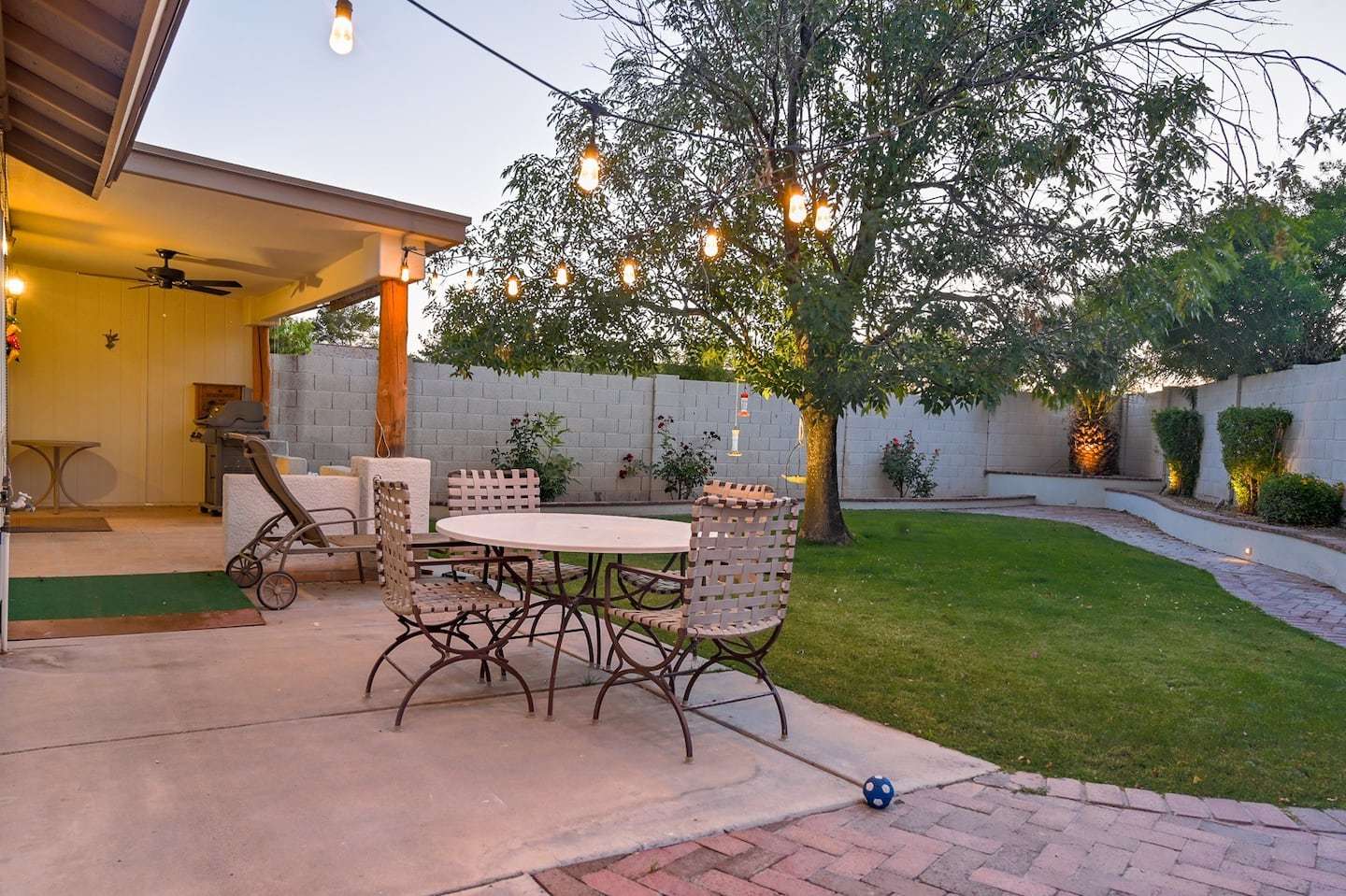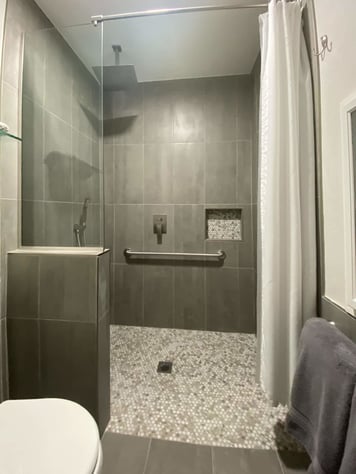Try hosting and expand options for travelers with disab - Reeve Foundation
The Christopher & Dana Reeve Foundation is partnering with Airbnb to help expand travel options for people living with paralysis. Interested to try hosting and sharing your space with accessibility features? Learn more.

Loren, a photographer and vice president of communications and marketing at Ability360, a Center for Independent Living in Phoenix, can rattle off travel challenges familiar to anyone living with a spinal cord injury: searching for airport taxis able to accommodate wheelchairs; navigating unexpected steps that block entrances; and most maddening of all, arriving at a hotel only to discover that a pre-booked accessible room is, in fact, not.

"I've experienced that many, many times," says Loren, who has traveled extensively throughout the southwestern United States and Mexico since sustaining a C5-C6 injury in 1985. “Shake a stick and you can find somebody using a wheelchair who has experienced that."
A few years ago, Loren decided to become an Airbnb Host and provide the kind of space he'd long sought as a traveler himself. He renovated the neighboring unit in his Phoenix duplex to match his own, including a roll-in shower, ramps to the laundry room and back patio, and lever handles—not knobs—on the doors. When it was time to list the property, he chose a listing title he knew would stand out for those who needed it: "Open floor plan house featuring wheelchair access."
The response has been tremendous, with guests regularly staying 24 nights of each month. And though Loren doesn't only host people with disabilities, the steady stream of queries he receives specifically seeking accessibility features clearly shows him the demand for such properties.
Following its 2008 launch, Airbnb transformed the travel industry. For people interested in a location off the beaten path or something more personal than a hotel room, the platform provided a new way to see the world. But even as millions of users joined the site over the next decade, there was still a need for more properties with accessibility features and accessibility information in order to help remove barriers for people living with paralysis.
In recent years, Airbnb has been working to increase the number of stays with accessibility features and to make accessibility information Hosts provide more clear. Loren, whose success with his first property led him to add a second listing, regularly encourages other Hosts in a regional Facebook group to think more about accessibility, especially if they're doing a remodel—and even if only because it makes good business sense.
You're marketing to many more people if you can make it more accessible," he says. "It's an opportunity to host more people and it's only going to grow.
 Along with its efforts to welcome more Hosts with spaces offering accessibility features, Airbnb also aims to better help travelers with disabilities more easily find and assess these options. A recently revamped search feature includes more than a dozen accessibility filters, from bathroom grab bars and wide doorways to step-free entry to various rooms. Hosts are asked to provide photos for each feature in order to provide additional important information to help guests determine if the space fits their specific accessibility needs before they book.
Along with its efforts to welcome more Hosts with spaces offering accessibility features, Airbnb also aims to better help travelers with disabilities more easily find and assess these options. A recently revamped search feature includes more than a dozen accessibility filters, from bathroom grab bars and wide doorways to step-free entry to various rooms. Hosts are asked to provide photos for each feature in order to provide additional important information to help guests determine if the space fits their specific accessibility needs before they book.
"Everyone has budget constraints," Loren says. "Unfortunately, accessibility often means you need more space, and that often means a more expensive vehicle, a bigger place to stay. You really get one shot to get it right, so trying to make sure people can make the right decision before they get there is, in my mind, how you host a successful trip."
 Details and information matter. An inadvertent mistake—such as not counting a small step and therefore describing an entrance as step-free—can derail a trip for some guests. That’s why, in his listings, Loren photographs a yardstick across doorways so guests don't have to guess whether their wheelchair will fit through the opening.
Details and information matter. An inadvertent mistake—such as not counting a small step and therefore describing an entrance as step-free—can derail a trip for some guests. That’s why, in his listings, Loren photographs a yardstick across doorways so guests don't have to guess whether their wheelchair will fit through the opening.
For Loren, hosting guests has been rewarding after so many years of traveling through a world that frequently ignores the needs of people with disabilities.
"It's great to get feedback from anybody that enjoys our home, but it means something more from someone that has had those challenging experiences in hotels or booking their travels," he says. "That they came here and it was just easy – that they were able to do what they wanted to do in Phoenix without having to worry about access. That's the thing that makes it something we want to do."
Interested to try hosting and sharing your space with accessibility features? Learn more.
Christopher & Dana Reeve Foundation is a partner of Airbnb and this blog post was produced as a part of this partnership. This is the first post in a series. Next up: creating space for everyone and tips for making homes more accessible.
Join Our Movement
What started as an idea has become a national movement. With your support, we can influence policy and inspire lasting change.
Become an Advocate